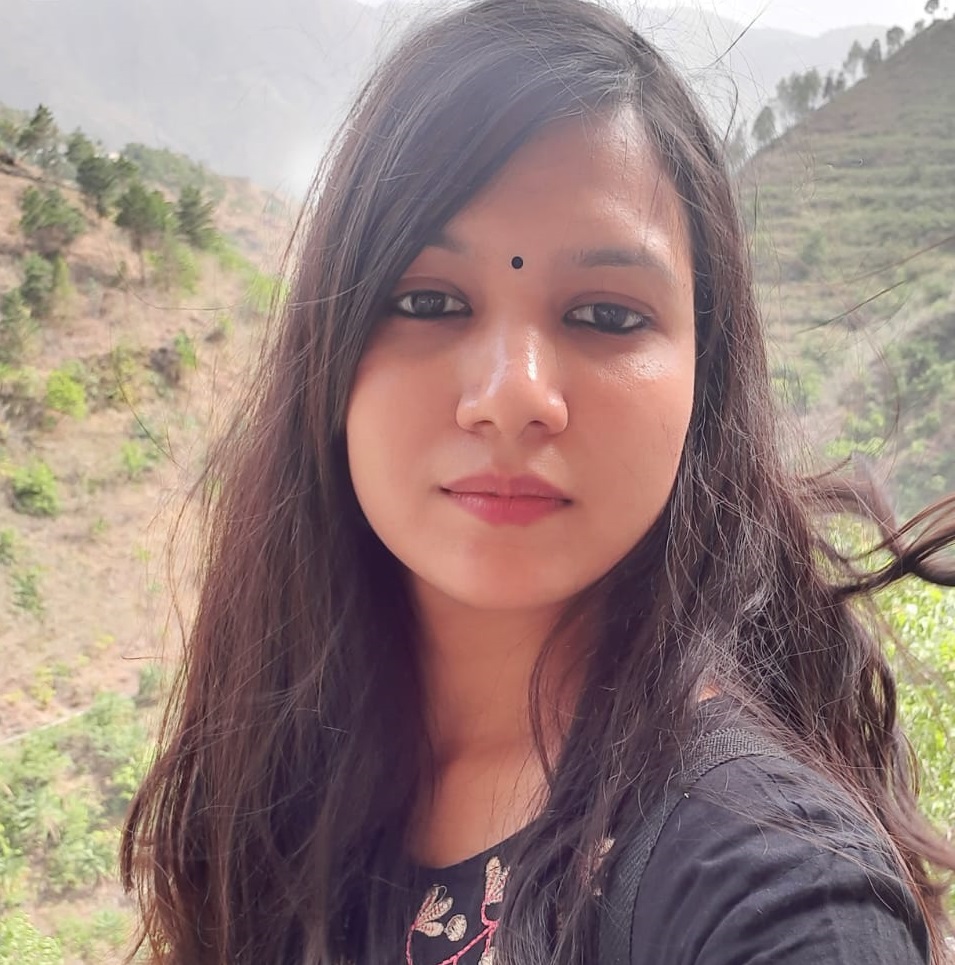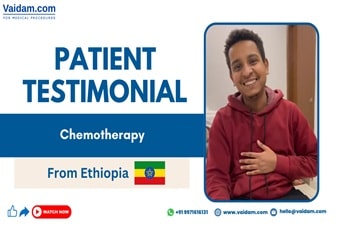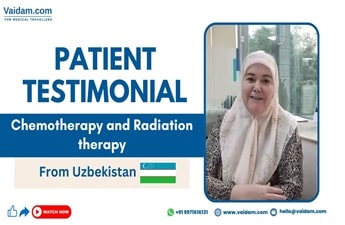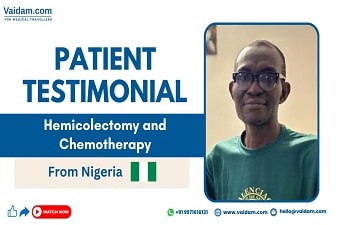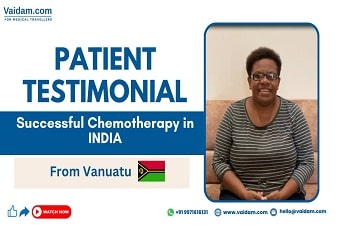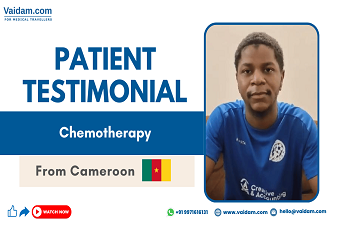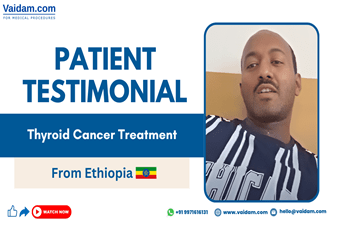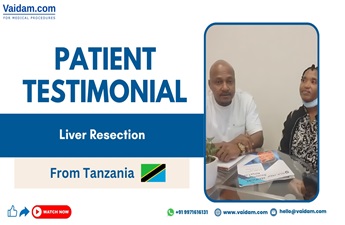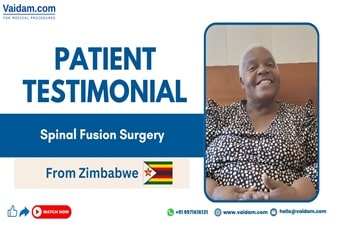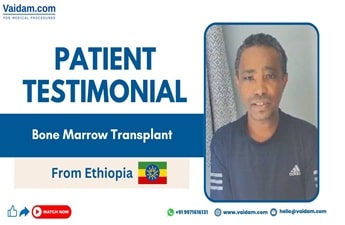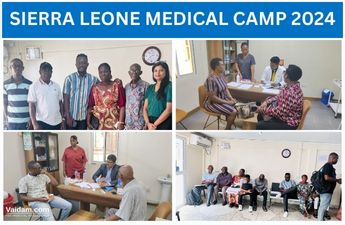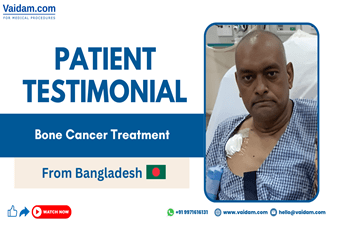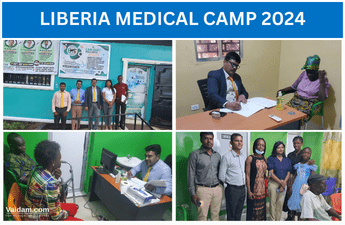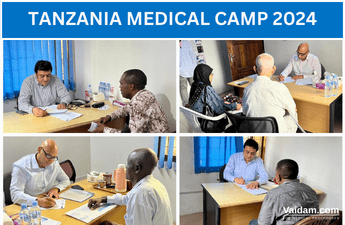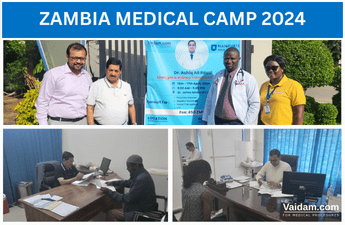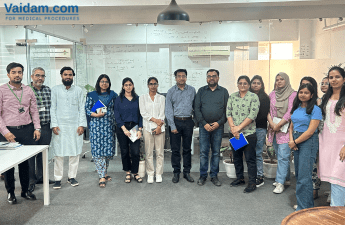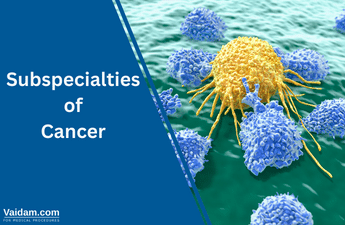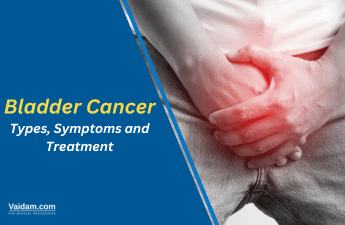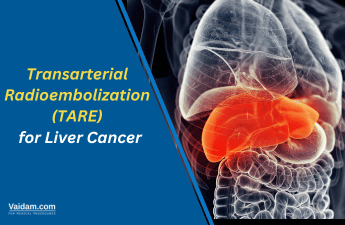
Among the diverse types of cancer, gallbladder cancer is one of the rarest and most challenging to combat. Gallbladder cancer is a rare but aggressive form affecting thousands worldwide yearly. While it remains a challenging diagnosis, advancements in medical technology, research, and specialized treatment options have significantly improved the outcomes for patients battling this disease.
From surgery and chemotherapy to innovative therapies and support systems, India's healthcare landscape offers hope to those affected by this disease.
The cost of gallbladder cancer treatment for patients undergoing surgery varies between 80,000 INR and 2,00,000 INR. However, in the case of chemotherapy and radiation therapy, it includes a huge cost of around 2,00,000 INR to 20,00,000 INR.
Get in Touch with Medical Experts
What is Gallbladder Cancer?
Gallbladder cancer develops when malignant cells originate in the gallbladder's tissues. The gallbladder, a pear-shaped organ in the upper belly, sits just under the liver and holds bile. Bile connects the gallbladder and liver to the first part of the small intestine when food is broken down in the intestines and the stomach.
What are the Types of Gallbladder Cancers?
The different types of gallbladder cancer include:
- Nearly all gallbladder cancers are adenocarcinomas. An adenocarcinoma starts in gland-like cells that line many body surfaces, including the insides of the digestive system.
- Papillary adenocarcinoma is a rare type of gallbladder adenocarcinoma. The cancer cells found in gallbladder cancers form finger-like projections. Typically, papillary cancers have a lower chance of spreading to the liver or nearby lymph nodes.
- Other cancer types that start in the gallbladder include squamous cell carcinomas, adenosquamous carcinomas, and carcinosarcomas, but these are rare.
What are the Risk Factors of Gallbladder Cancer?
There are certain risk factors that increase the chances of developing gallbladder cancer. These include:
- Gallstones: Being the most common risk factor for gallbladder cancer, gallstones can cause chronic inflammation.
- Porcelain gallbladder: In a porcelain gallbladder, the wall of the gallbladder becomes covered with calcium deposits. This increases the risk of gallbladder cancer, possibly due to shared inflammation.
- Sex: Gallbladder cancer occurs 3 to 4 times more often in women than men.
- Obesity: Patients with gallbladder cancer are mostly overweight/obese than people without the disease.
- Older age: Gallbladder cancer, mainly seen in older people, may also develop in younger people.
- Choledochal cysts: Choledochal cysts are bile-filled sacs along the common bile duct. The cells lining the sac have areas of precancerous changes, which can progress to gallbladder cancer over time.
- Gallbladder polyps: A gallbladder polyp refers to a bulging growth on the inner wall of the gallbladder. Polyps larger than 1 centimeter (almost a half inch) are more likely to cause cancer.
- Primary Sclerosing Cholangitis (PSC): PSC causes inflammation of the bile ducts, resulting in scar tissue or sclerosis. Individuals with PSC have an increased risk of gallbladder and bile duct cancer.
- Family history: If there is a history of gallbladder cancer, the likelihood of developing this illness may be higher. However, it is important to note that this disease is rare and has a relatively low risk.
- Other possible risk factors: Some factors contributing to health risks include smoking, exposure to chemicals commonly used in rubber and textile industries, and exposure to nitrosamines.
What are the Signs and Symptoms of Gallbladder Cancer?

Gallbladder cancer often doesn't exhibit signs or symptoms until the disease is advanced and the tumor has grown significantly or metastasized.
Typical indications of gallbladder cancer are:
- Abdominal (belly) pain - Individuals with gallbladder cancer are likely to experience pain in the upper right area of their abdomen.
- Nausea and/or vomiting - Vomiting can sometimes be a symptom of gallbladder cancer for certain individuals.
- Jaundice - When cancer obstructs the bile ducts, the bile cannot flow into the intestines. As a result, bilirubin accumulates in the bloodstream and deposits in various body regions, resulting in jaundice.
- Lumps in the belly - The gallbladder may swell when the bile ducts are obstructed by cancer. Furthermore, gallbladder cancer can metastasize to adjacent areas of the liver.
- Other symptoms - Other less common symptoms of gallbladder cancer include:
- Loss of appetite
- Weight loss
- Fever
- Swelling in the abdomen (belly)
- Itchy skin
- Dark urine
- Light-colored or greasy stools
What are the Treatment Options Available for Gallbladder Cancer?
The treatment for gallbladder cancer includes the following:
Palliative Therapy for Gallbladder Cancer
Palliative care is the treatment used to help control or reduce symptoms caused by cancer. It is not meant to cure cancer. It includes pain medication, drugs to manage symptoms, radiation, and chemotherapy. Other procedures may be recommended to improve the quality of life or prevent complications.
Some procedures that might be used as part of palliative care for gallbladder cancer are listed below:
- Biliary stent or biliary catheter: A catheter can drain the bile in cases where cancer leads to jaundice. These procedures often help relieve or prevent symptoms in more advanced cancers. They can also help relieve jaundice before potentially curative surgery to lower the risk of surgery complications.
- Biliary bypass: In people who are healthy enough, biliary bypass is performed to drain the bile from the liver and gallbladder. This may include:
- A hepaticojejunostomy connects the duct that carries bile from the liver to the jejunum
- A gastrojejunostomy (gastric bypass) joins the stomach directly to the jejunum
- A choledochojejunostomy joins the common bile duct to the jejunum
Surgery for Gallbladder Cancer
Generally, two types of surgery are performed for gallbladder cancer:
- Potentially Curative Surgery, also known as resectable surgery, is performed when imaging tests or previous surgeries indicate a high probability of the surgeon being able to remove the cancer completely.
- Resectable describes cancers doctors believe can be removed completely. This is potentially curative surgery. Only a small proportion of cases can be surgically removed when gallbladder cancer is initially detected.
- Unresectable means doctors think the cancer is too advanced, has spread too far, or is too difficult a place to be entirely removed.
-
Palliative Surgery is done to relieve pain symptoms, treat and prevent complications, such as blockage of the bile ducts. This surgery is performed when the cancer tumor is too widespread to be removed completely. Palliative surgery is not expected to cure cancer, but it can sometimes help a person feel better and can help them live longer.
Surgery for Resectable Cancers
Simple cholecystectomy
Cholecystectomy is a surgical procedure involving the removal of the gallbladder. The procedure is called a simple cholecystectomy when only the gallbladder is removed. This procedure is commonly performed to get rid of the gallbladder due to gallstones or other reasons. However, it is not recommended if gallbladder cancer is suspected or known as a more complex operation is required instead.
A simple cholecystectomy can be performed in the following two ways:

- Laparoscopic Cholecystectomy: Removing a gallbladder for a non-cancerous problem that is not cancer can be done with laparoscopic surgery, which is less invasive due to the smaller incision. However, this method is not recommended if there is suspicion of gallbladder cancer.
- Open Cholecystectomy: This technique is occasionally utilized to address non-cancerous issues with the gallbladder, such as gallstones. However, doctors typically opt for an extended cholecystectomy if they suspect gallbladder cancer before surgery. This approach may also aid in the identification of gallbladder cancer.
Extended (Radical) Cholecystectomy
An extended (or radical) cholecystectomy is performed to minimize the risk of cancer recurrence. It is mostly done in cases of gallbladder cancer. The scope of the surgical procedure is determined by the location of the cancer and the extent to which it has spread.
Surgery for Unresectable Cancers
Surgery is not a common treatment option in cases where cancer is unresectable. However, there are some scenarios where it can still be beneficial as palliative surgery. The aim of the surgery is not to cure cancer but to address the symptoms it causes. For instance, inserting a stent into a bile duct obstructed by a tumor can keep the duct open and facilitate bile flow.
Radiation Therapy for Gallbladder Cancer
Radiation therapy to treat gallbladder cancer might be used in one of the following ways:
- After surgery, radiation may kill any cancerous cell that might have been left after surgery but was too small to see (adjuvant therapy).
- Radiation therapy may serve as the primary treatment for patients whose cancer is localized but cannot be removed by surgery. Although it may not cure the cancer, it can prolong the patient's life.
Chemotherapy for Gallbladder Cancer
Chemotherapy is given with cancer-killing drugs, usually given into a vein or taken orally. Chemotherapy, usually given in cycles, is followed by a rest period which allows the body to recover. Chemo cycles generally last about 3-4 weeks.
Why Choose India for Gallbladder Cancer Treatment?
- Indian hospitals are accredited by JCI and NABH.
- The oncologists are highly skilled and knowledgeable, with vast experience working in advanced cancer hospitals in the USA and Europe.
- Indian hospitals have the latest high-end infrastructure and technology like Brain Suite, Novelis TX, PET Scan, SRS/5RT, CyberKnife, Radiosurgery, Gamma Knife, IMRT/IGRT, da Vinci XI Robotic System, Linear Accelerator (LINAC), etc.
- Indian hospitals provide affordable cancer treatment, saving up to 40-60% compared to the USA and UK.
Who are the Best Doctors for Gallbladder Cancer Treatment in India?
- Dr. Ganesh Nagarajan: He is a renowned Hepatobiliary Pancreatic and Gastrointestinal Surgeon with over 18 years of experience. His areas of expertise include Surgeries for cancers of the liver, bile duct, and gallbladder, Pancreatic resections for pancreatic cancer, Esophageal and intestinal cancer, Abdominal sarcomas, retroperitoneal tumors, HIPEC Surgery, surgery for portal hypertension, surgery for bile duct stricture/injury, etc.
- Dr. Muzammil Shaikh: He is a Medical Oncologist with over 20 years of experience. His area of interest includes Carcinoma Ovary, Geriatric Oncology, Precision & Molecular Oncology, Carcinoma Breast, Carcinoma Lung, Bone & Soft tissue Sarcomas, Hematolymphoid Malignancies, Head & Neck Cancers, Genito-Urinary Cancers, Gastrointestinal & Hepatobiliary Cancers, Palliative Care, etc.
- Dr. Vedant Kabra: He is a renowned Surgical Oncologist having 20 years of experience. His expertise includes the treatment of Breast Cancer, GI Cancer, and Head & Neck Cancer Surgery. Performed over 12000 cancer surgeries and has successfully performed various complex onco-surgical procedures.
- Dr. Vinod Raina: He is one of the best Medical Oncologists in India, with over 37 years of experience. His major interests are Lung Cancer, Prostate Cancer, Breast Cancer, Concurrent Bio - Radiotherapy for Head and Neck Cancers, Pediatric Chemotherapy & Palliative Bio-chemotherapy.
- Dr. Kaustav Talapatra: He is a Radiation Oncologist with over 17 years of experience. His expertise lies in IMRT, IGRT, Stereotactic Radiotherapy, PET Based Radiotherapy Planning, Treatment and management of Head and Neck Cancers, Gynecological Malignancies, Prostate Cancer, Breast Cancer, etc.
Key Takeaway
India's commitment to medical advancements and its dedication to providing quality healthcare services has positioned it as a promising destination for gallbladder cancer treatment. The country's multidisciplinary approach, state-of-the-art facilities, and skilled medical professionals have significantly improved patient outcomes and enhanced the quality of life for those battling this aggressive cancer.

